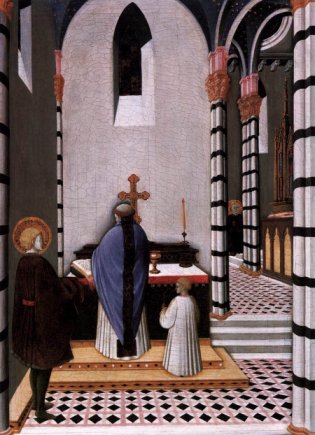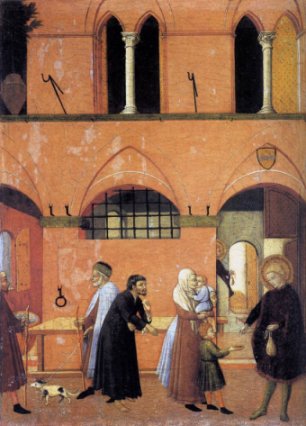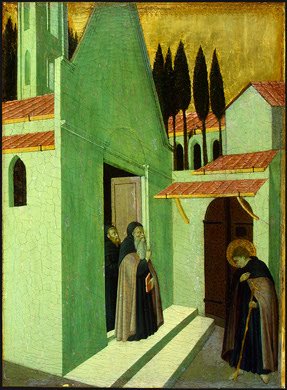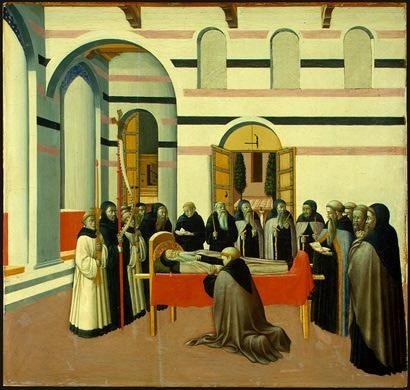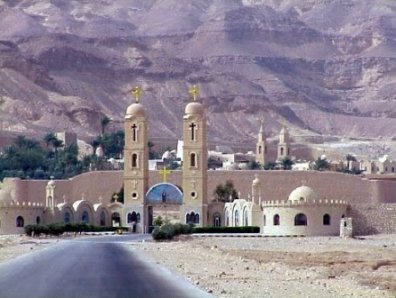|
Saint
Anthony |
|
|
|
|
|
|
|
|
'Now
it was not six months after the death of his parents, and going
according to custom into the Lord's House, he communed with himself and
reflected as he walked how the Apostles left all and followed the
Saviour; and how they in the Acts sold
their possessions and brought and laid them at the Apostles' feet for
distribution to the needy, and what and how great a hope was laid up for
them in heaven. Pondering over these things he entered the church, and it
happened the Gospel was being read, and he heard the Lord saying to the
rich man, If thou wouldest be perfect, go and sell that thou hast and
give to the poor; and come follow Me and thou shalt have treasure in
heaven. Anthony, as though God had put him in mind of the Saints, and the passage had been read on his account, went out immediately from the church, and gave the possessions of his forefathers to the villagers they were three hundred acres, productive and very fair that they should be no more a clog upon himself and his sister. And all the rest that was movable he sold, and having got together much money he gave it to the poor, reserving a little however for his sister's sake. And again as he went into the church, hearing the Lord say in the Gospel, be not anxious for the morrow, he could stay no longer, but went out and gave those things also to the poor. (Athanasius - The Life of Anthony, 2 - 3.) Note: the scene in the church moves the location from Egypt to the Duomo in Siena - the zebra stripes are unmistakeable. What is particularly interesting is the glimpse - on the extreme right - of Duccio's Maesta. |
|
|
|
|
|
|
|
|
|
|
